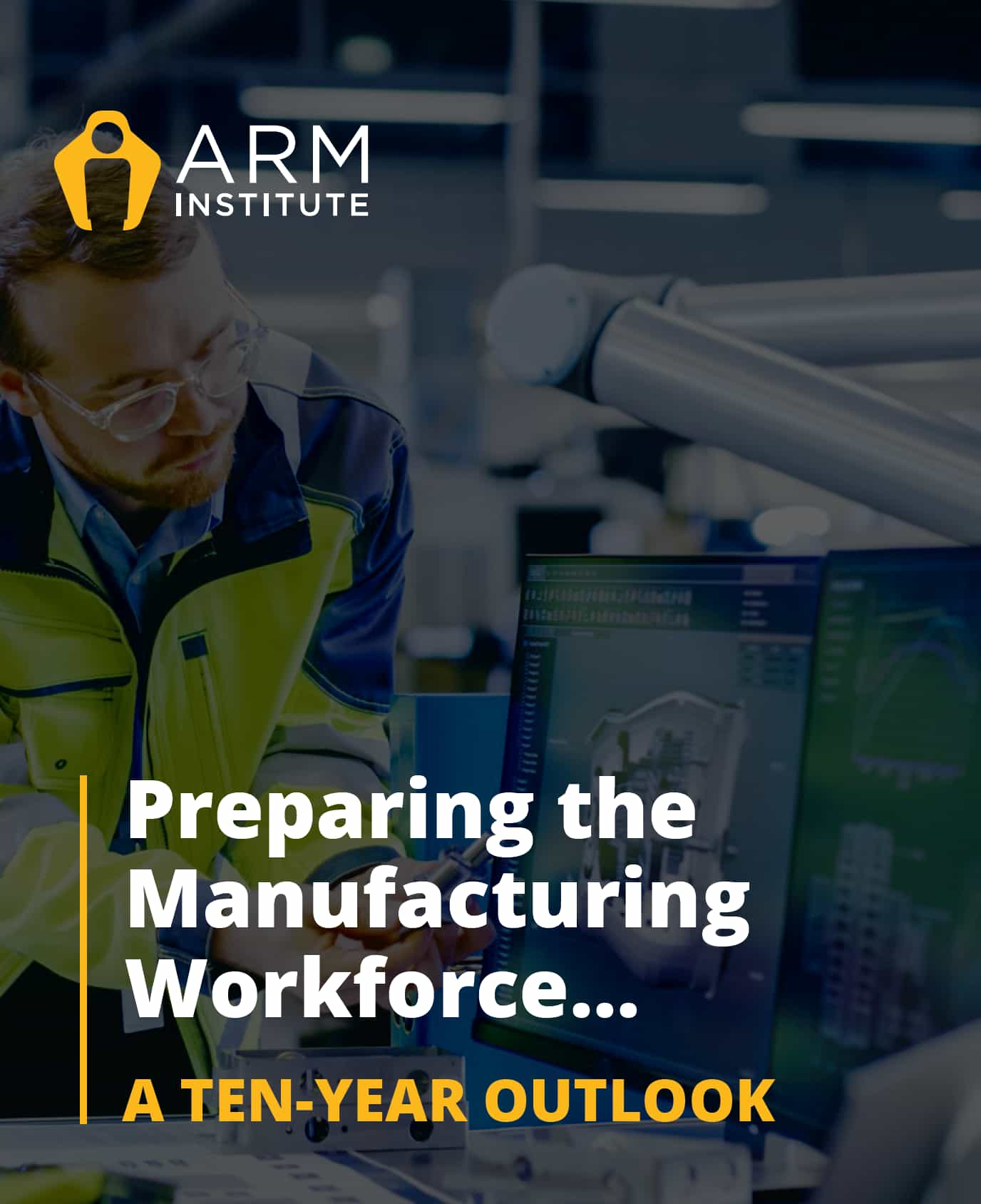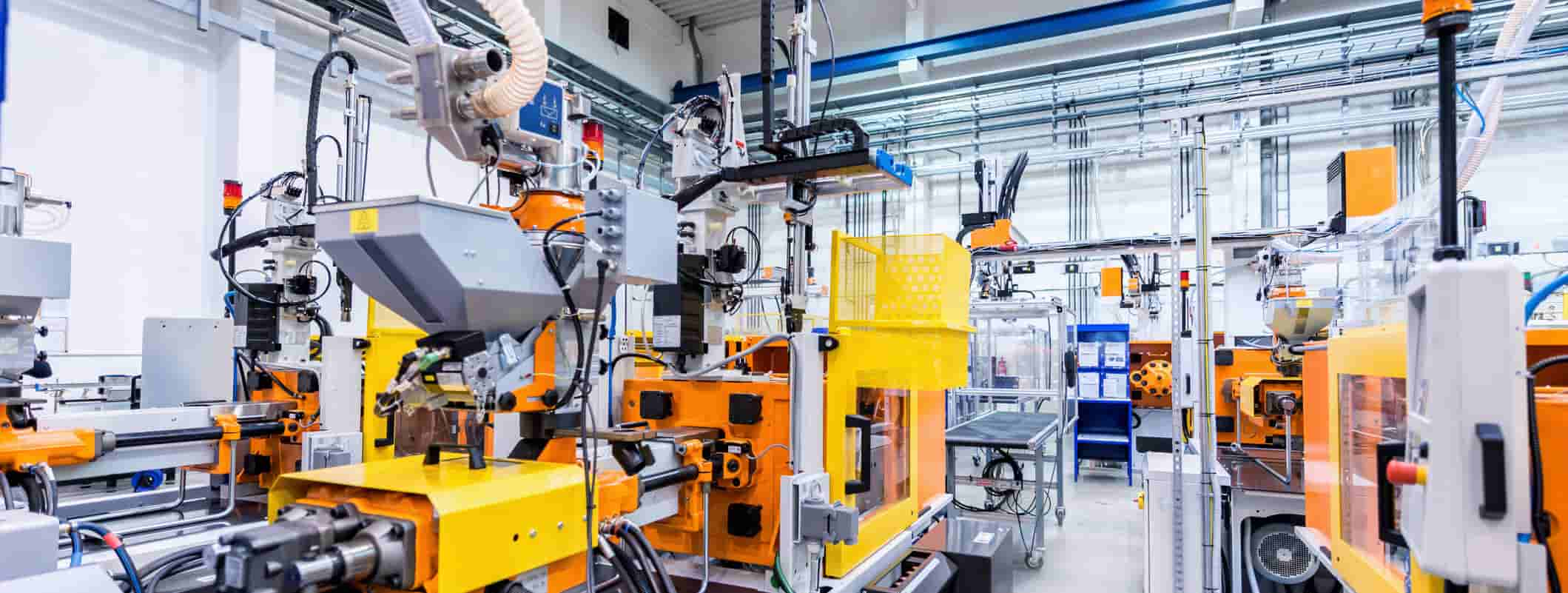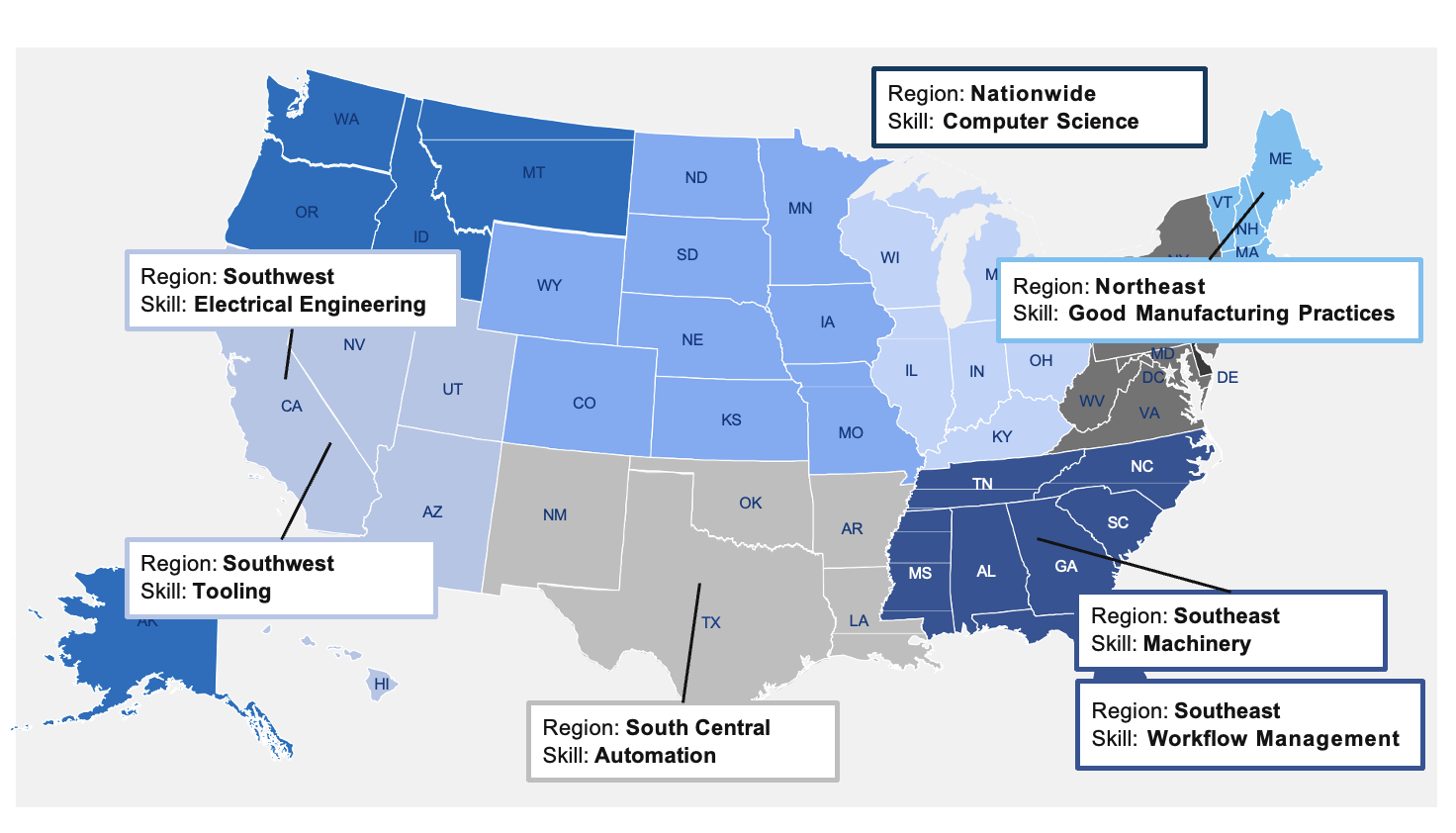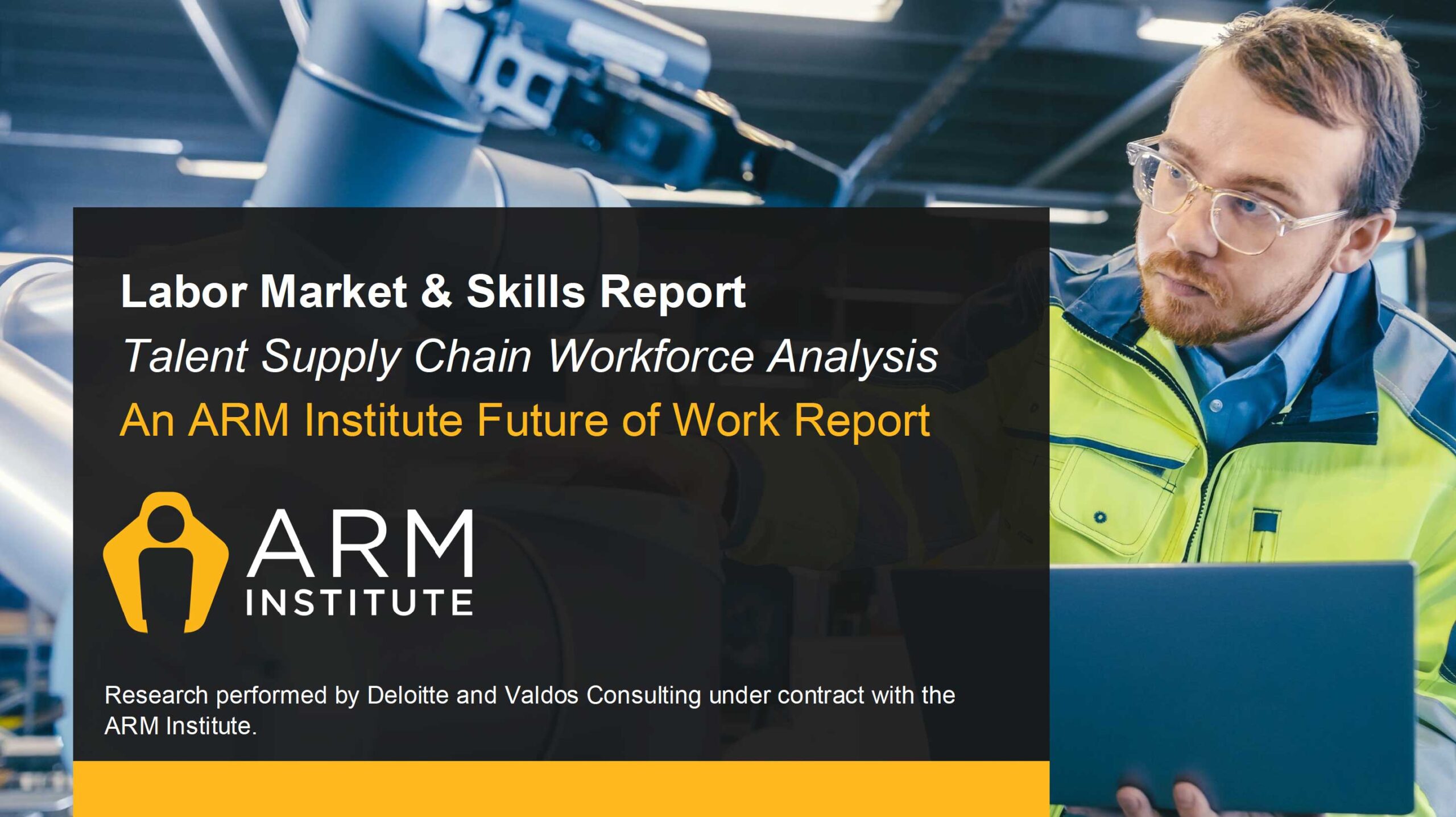Our Future of Work Report

Manufacturing and the development of technology to improve manufacturing have been a source of American prosperity and national security for over a century. The introduction of disruptive technologies such as robotics, automation, and artificial intelligence (AI), while addressing critical areas of need in manufacturing, are also changing the very nature of work for U.S. manufacturers. New skills and different types of training are needed to prepare workers for these changes.
Leveraging existing research, interviews, and case studies from across the ARM Institute’s network, this study provides key insights on workforce issues and programs that are helping prepare workers for the changes that are already here and those that are on the horizon. This new study provides lessons learned, best practices, and actionable steps for educators, employers, and labor unions to take in order to build a future-ready manufacturing workforce.
This report addresses the following questions and others:
- How do we leverage published research to address the needs of the manufacturing workforce?
- What is the impact of Industry 4.0 and Industry 5.0 on the important skills needed in the workforce over the next 10 years?
- What are the challenges and lessons learned by the sector?
Preparing the manufacturing workforce to work alongside these technologies will require a collective effort from educators at all levels, employers, labor unions, and ecosystem support institutions, including the entire Manufacturing USA® Network and other government agencies. Our report outlines the actions educators, employers, labor unions, the ARM Institute, and federal agencies must take to prepare the U.S. manufacturing workforce for the changes that are already here and those that are still to come.
Download our report at no cost.
This research and report was funded through a grant from the Office of the Secretary of Defense and was accomplished under Agreement Number W911NF-17-3-0004. The views and conclusions contained in this document are those of the authors and should not be interpreted as representing the official policies, either expressed or implied, of the Office of the Secretary of Defense or the U.S. Government. The U.S. Government is authorized to reproduce and distribute reprints for Government purposes notwithstanding any copyright notation herein.
Acknowledgements
The ARM Institute would like to offer a very special thanks to Dr. Liz Reynolds for her conversations and insight as a motivating force for the ARM Institute in studying the future of work, and for her efforts in this area as former Special Assistant to the President for Manufacturing and Economic Development.
The ARM Institute also thanks the following organizations for their contributions to this report: the Block Center for Technology and Society at Carnegie Mellon University, AccuRounds, AFL-CIO Technology Institute, Airbus Americas, AmSkills, APT Manufacturing, Association for Advancing Automation (A3), A.W. Beattie Career Center, Boston Dynamics, Commonwealth Center for Advanced Manufacturing, Duro Workforce, Festo Didactic Inc, Heinz College at Carnegie Mellon University, Lorain County Community College, the Manufacturing Futures Institute at Carnegie Mellon University, Motlow State Community College, National Association of Workforce Boards, National Coalition of Advanced Technology Careers (NCATC), New Century Careers, NSF Corps at Drexel University, Office of the Secretary of Defense (OSD) Manufacturing Technology Program, RapidTPC, Robins Air Force Base, Robotics Academy at Carnegie Mellon University, Robotics Education and Competition Foundation, SimInsights, Southwest Alabama Partnership for Training and Employment, Stellantis, TechSolve, United Auto Workers, The Uniquely Abled Project, University of Illinois Workforce and Education Research Collaborative, Wharton School at University of Pennsylvania, and Westchester Community College.



